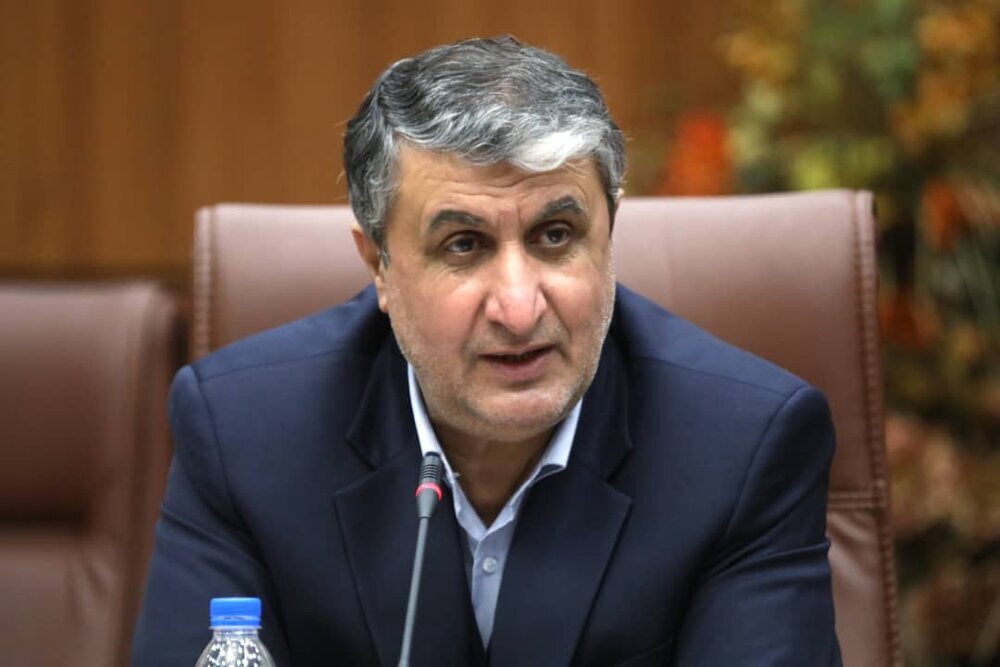Talks should result in complete lifting of sanctions and accusations: nuclear chief

TEHRAN- Mohammad Eslami, the head of the Atomic Energy Organization of Iran (AEOI), stated on Monday that the Vienna negotiations are intended to dispel any claims regarding Tehran's nuclear activities as well as to permanently abolish the sanctions imposed by the United States.
"The premise of the negotiations was to reject charges and eliminate excuses from the adversaries continually publishing bogus news and documents against Iran," Eslami told reporters while visiting the western province of Lorestan to inaugurate multiple development projects.
The AEOI chief stated that the talks' main objective is to permanently abolish the sanctions so that the nation would benefit from the agreement's economic dividends.
On Saturday, the AEOI director said efforts to save the Joint Comprehensive Plan of Action (JCPOA) should steer Iran away from the present disruptions and toward economic exchanges, advancement, and economic development.
Commenting on the Vienna talks, he said the Iranian negotiating team "has stood up against the other side and, while retaining the red lines, has made the lifting of the sanctions its priority."
The talks to revive the JCPOA has reached a sensitive stage.
On August 8, the European Union presented its draft nuclear text to put the JCPOA on the right track. The EU called it “final”. Iran responded to the text on August 15. EU foreign policy chief Josep Borrell described Iran’s response as “reasonable”.
"There was a proposal from me as coordinator of the negotiations... and a response from Iran that I considered reasonable. It was transmitted to the United States which has not yet responded formally," Borrell told a university event in the northern Spanish city of Santander.
The U.S. responded to the text on August 24. Iran is now studying the U.S. response.
Nour News, an outlet close to Iran’s Supreme National Security Council, has said Iran would provide answer to U.S. response by Friday. But, Iranian Foreign Ministry spokesman has said it is impossible to specify a precise timing.
“The important point is that the Islamic Republic of Iran is serious about reaching an agreement that would be both comprehensive and lasting and also meet the country’s interests,” Kanaani pointed out.
In phone talks with his Omani counterpart on Sunday, Iranian Foreign Minister Hossein Amir Abdollahian said Iran will inform the EU about its assessment of the U.S. response after carefully examining it.
The European Union’s foreign policy chief has said he is upbeat about the talks in Vienna over reviving the 2015 Iran nuclear deal.
In an interview with the Austrian Kronen Zeitung newspaper published on Sunday, Josep Borrell said he received the U.S. response to an Iranian response and is optimistic about the state of the talks.
“I got the response from the U.S. It is now up to Iran to respond to them,” he said, thanking Austria for its role in the talks.
“We have arrived at the crucial moment. I'm optimistic, it's the last millimeters,” Borrell said.
Iran emphasizes even if some progress has been made, more work needs to be done before a comprehensive agreement can be reached.
Since April of last year, there have been multiple rounds of talks between Iran, the remaining members of the JCPOA and the U.S. to bring the JCPOA back to life.
As part of his “maximum pressure” campaign against Iran, former U.S. President Donald Trump unilaterally ditched the JCPOA in May 2018 and reinstated sanctions against the Islamic Republic and added new ones. Even though the Biden administration has frequently admitted that the policy has been a mistake and a failure, the penalties are still in place.
Iranian officials say the ball is now in the U.S. court, and the Biden administration should reassure Tehran that the U.S. won't make the same mistakes that Trump did.
